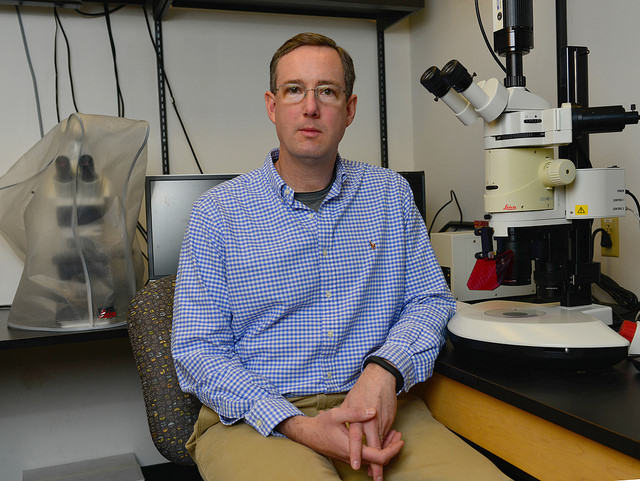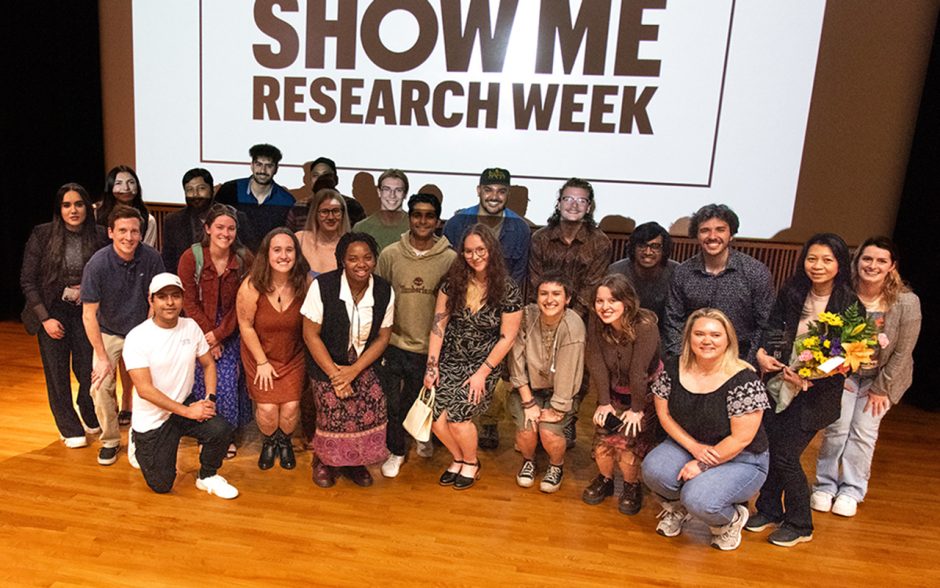
Chris Lorson, associate dean for Research and Graduate Studies in the University of Missouri College of Veterinary Medicine, has received four grants from the National Institutes of Health to continue his research on neurodegenerative diseases, including spinal muscular atrophy (SMA) and spinal muscular atrophy with respiratory distress type 1 (SMARD1).
Aug. 13, 2019
Neurons are the building blocks of the nervous system, the network of cells and fibers that transmit impulses between parts of the human body. For the past two decades, Chris Lorson, associate dean for Research and Graduate Studies in the University of Missouri College of Veterinary Medicine and investigator in the Christopher S. Bond Life Sciences Center, has laid the building blocks for research of neurodegenerative diseases that affect millions of people worldwide.
Lorson recently received four grants totaling more than $1 million from the National Institutes of Health to continue his research on spinal muscular atrophy (SMA) and spinal muscular atrophy with respiratory distress type 1 (SMARD1). The leading genetic cause of infant deaths, spinal muscular atrophy affects nearly one in 10,000 births and causes neurons to die, resulting in muscle failure.
“Originally, I was studying the basic molecular biology underpinning the disease,” Lorson said. “Over the years, I transitioned to looking for potential treatments, such as gene therapy, by leveraging my understanding of molecular biology.”
Two of the grants are aimed at identifying genes that reduce disease severity through a gene therapy approach. This research could help identify important biological functions related to disease development and potentially pinpoint therapeutic targets.
“There is some ‘cross talk’ between neurodegenerative diseases, and I think this is a good way to kind of leverage what we find in one disease and see if it applies to other diseases as well,” Lorson said.
A third grant focuses on advancing a potential therapy for SMARD1 with a swine model. In 2014, Lorson and his team developed a molecule that was highly effective in treating mice with spinal muscular atrophy. This new grant will help to continue that work.
“Rodents are a lot different than humans,” Lorson said. “While swine are not humans either, they are a lot closer to humans than rodents, which makes any drug or therapy that is tested more applicable.”
A fourth grant aims at expanding therapeutic options by combining a small molecule with a drug that has been licensed by Shift Pharmaceuticals, a company where Lorson serves as co-founder and chief science officer.
“SMA is really complex in the sense that there is a broad clinical spectrum,” Lorson said. “Therefore, it might take two drugs or more to address the complexity and spectrum of the disease.”
Although Lorson has been researching neurodegenerative diseases for more than 20 years, he knows that while the road ahead is still long, it has a lot of promise.
“We are in the early days of SMA research, and the ultimate objective is to push neurodegenerative disease research forward in terms of understanding the biology and developing therapeutics,” Lorson said. “This is not work that is being done in a vacuum, as the research is designed to directly impact the lives of patients.”




